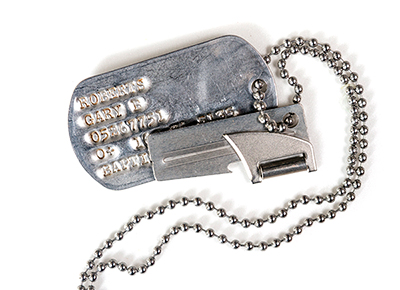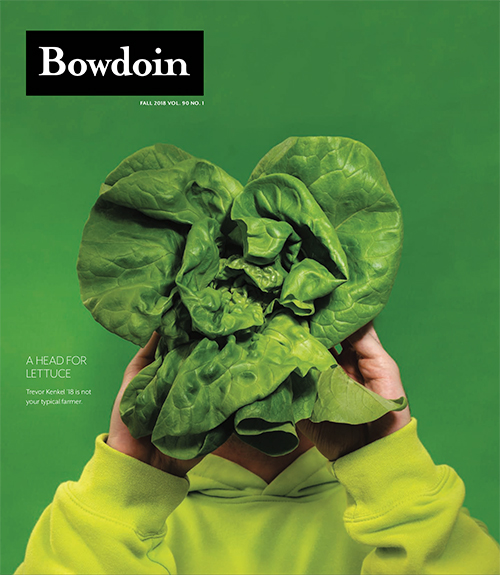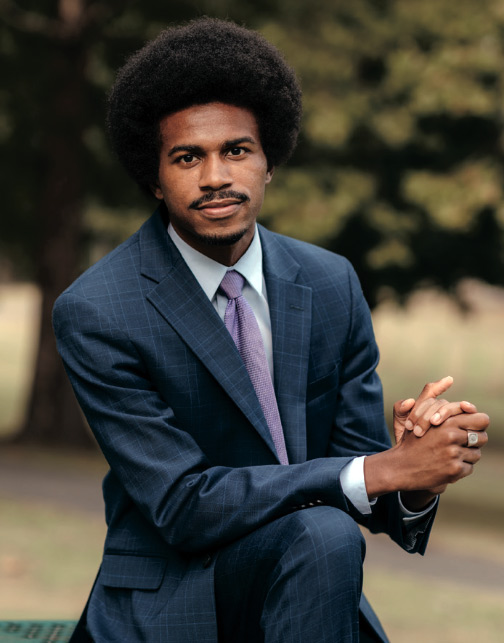Class of 1968 Reflections: Gary Roberts
By Bowdoin MagazineContext and culture make life bearable and enable those living on the fault lines to endure, and even triumph, in the midst of chaos. Reflecting on the events of 1968 and the body blows to our civic sense of self-worth, I can only conclude that my personal journey was enhanced by the people I surrounded myself with and the organizations that I voluntarily associated with. Both provided values that sustained.
 I arrived in Brunswick in the fall of 1964 as a naïve, Southern fundamentalist Christian with a strong sense of extended family, and very much a Lyndon Johnson democrat. Signing up for Army ROTC well before anyone had ever heard of Vietnam (how could I not, given my father's thirty-three months in the South Pacific and all six of my uncles WWII veterans?). Four years later, probably still naïve, but no longer Southern fundamentalist (but still a Christian), and glad/sad to see Johnson stepping down, I was commissioned an infantry 2LT in the US Army, graduated and married within a thirty-six-hour period in June 1968, and went on active duty in July, headed for Vietnam.
I arrived in Brunswick in the fall of 1964 as a naïve, Southern fundamentalist Christian with a strong sense of extended family, and very much a Lyndon Johnson democrat. Signing up for Army ROTC well before anyone had ever heard of Vietnam (how could I not, given my father's thirty-three months in the South Pacific and all six of my uncles WWII veterans?). Four years later, probably still naïve, but no longer Southern fundamentalist (but still a Christian), and glad/sad to see Johnson stepping down, I was commissioned an infantry 2LT in the US Army, graduated and married within a thirty-six-hour period in June 1968, and went on active duty in July, headed for Vietnam.
I distinctly recall grieving with Nat Harrison over Robert Kennedy’s death on the morning of June 5th. As a graduating ROTC cadet, I remember suffering through the ignominy of both the USS Pueblo and the early disasters of the Tet Offensive, but more than the suffering, I remember how our ROTC cadre (WWII, Korea, and Vietnam veterans all) were able to walk us through the errors and impart wisdom about how not to make these same mistakes should we come to be in combat. Rather than focus on the failures, we were able to celebrate our soldiers’ heroism and the ability of the Army to overcome its initial setbacks. All the while dodging water balloons as we marched through campus weekly.
April 9 found me at the United States Air Force Academy in Colorado representing Bowdoin at a student leadership conference. The news of Dr. King’s assassination swept through the conference; a shared sadness was present, and the community responded to a military chaplain’s heartfelt prayer of loss.
Three months later, I was deep in Georgia at Fort Benning and continually shocked at the harsh reality of Jim Crow laws and Sunday morning separation of races. Bowdoin presentations by the comedian Dick Gregory and Mayor Charles Evers (Medgar’s brother), did little to prepare me for the true southern experience. Nevertheless, there were some clear indications of potential: the US Army integrated in 1947 and was a role model for what could be accomplished. One of my first commanders was a black major who was an army aviator, and he was, to use military jargon, “squared away.” I learned a great deal from him about leadership and, after my initial encounter, never gave his race a second thought. Within the Army culture, he was “Sir,” and that said it all.
Listening to the craziness of the 1968 Democratic National Convention in Chicago on the radio (couldn't afford a TV) was surreal, but my daytime activities were structured and, while the country might be falling apart, the US Army was not. As an institution, it—as still to this day I believe—epitomizes the wide spectrum of American values; when the Army is good, it is very good!
My infantry office basic course consisted of 240 second lieutenants, all on their way to Vietnam. On the first day, the senior NCO had eighty of us stand up, and bluntly informed us to look around, because that was the number (one third) of the class who would not be returning from Vietnam. As you can imagine, this quickly focused our attention and certainly was an incentive to prepare physically and mentally, while honing our technical and tactical proficiency. The infantry's motto, “Follow Me” still resonates with me fifty years later.
In retrospect, my wide variety of friends and associates at Bowdoin gifted me with a life-long ability to recognize that two mutually contradictory beliefs might both contain merit.
Together, these perspectives created a personal combination of logical incrementalism and muddling through with a purpose that helped me navigate through the turmoil of 1968.
This reflection is part of a series written by members of the Class of 1968. Read more in For Conscience and Country






This story first appears in the Fall 2018 issue of Bowdoin Magazine.
Update your mailing and subscription information, and browse other features and profiles here.




